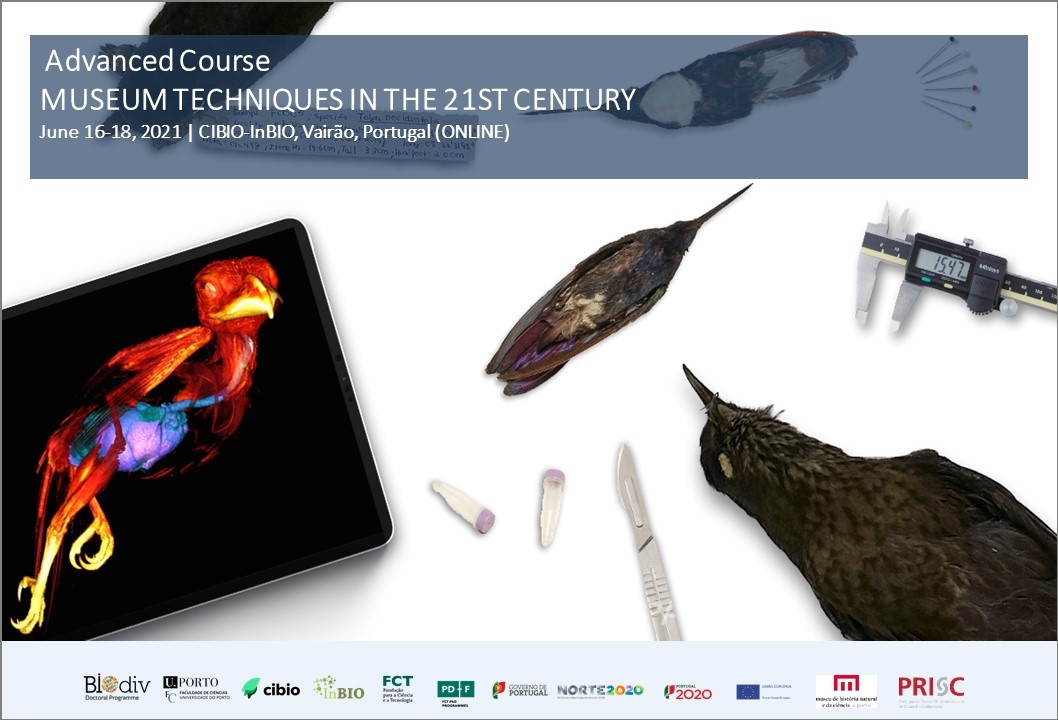Museum Techniques in the 21st Century

After two successful presential editions, where students prepared bird and mammal specimens, and enjoyed a strong interaction and brainstorming between students and instructors, this edition will be exclusively online in 2021. In this online edition registration costs will be minimized, and the number of students can be increased, to reach a wider public (maximum 30 participants).
To provide an updated overview of the potential of museum collections for biodiversity research. The instructors, from CIBIO-InBIO and the Museum of Natural History and Science of the University of Porto (MHNCUP), will share their knowledge and experience on curating and using museum specimens, complemented by lectures of several invited researchers on their innovative use of museum’s resources for vertebrate’s research.
More specifically we aim to:
1) present an updated overview on the value of museums and the use of collections and specimens in the 21st century, using new technologies and analytical methods, following the principle of "the extended specimen”. These include, among others:
a) discuss state-of-the-art ‘whole specimen’ techniques including CT scanning and 3D modelling;
b) consider how museum specimens provide genetic and genomic resources and how to retrieve genomic data from historical specimens;
c) present other non-genetic molecular methods (e.g., stable isotopes, toxicology and quantification of coloration);
d) understand the potential of the spatial and temporal data gathered along with the specimen, especially when made available in global repositories, such as GBIF.
2) present the ways that ‘voucher specimens’ of vertebrates can be prepared to ensure that quality data is available for generations to come.
Registration
1) your academic status (PhD student, MSc Student, Other) and the institution to which you are affiliated.
2) BIODIV students should also mention which year of their PhD they are in.
3) Please provide a short description of why this course is interesting for you and what you expect to gain by attending it.
To apply, please fill the form available HERE
Please note that new rules apply for all BIODIV students
